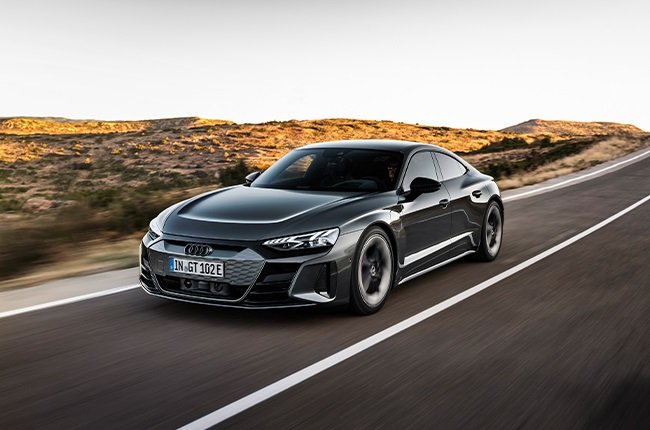Each evening before we switch off the lights, we keep our devices plugged in for an overnight charge so that they’re ready for operation in the morning. In a digital world of mobile phones, tablets and smartwatches, recharging is so habitual that we do it unconsciously. And so the idea of a “top up charge” to an electric vehicle each night can easily form part of our daily routine, writes Sascha Sauer, Managing Director of Audi South Africa.
Range anxiety – the fear of an electric vehicle running out of charge unexpectedly before you arrive at the next place to plug into the grid – is listed as one of the reasons for hesitancy around local electric vehicle ownership, according to 2020 South African EV Car Buyers Study. Of course, range anxiety isn’t just an electric vehicle problem – internal combustion engines run out of fuel too – but we’re so accustomed to seeing fuel stations on the road that it’s not something that we worry about.
Global research suggests that about 80% – 85% of electric vehicle owners adopt the habit of overnight “top-up” home charges, broadly replicating how most of us manage the day-to-day battery life of our mobile devices. The Audi e-tron 50 with its 71kWh battery boasts a range of more than 340 kilometres and when using the standard Audi compact charger on a single phase, 32 amp industrial socket, conveniently installed in the garage, the electric vehicle is charged at 80% overnight (from an estimated level of 5%) within a timeframe of approximately 10 hours. Charge time decreases and driving range opportunity increases as you move up the range of the six new e-tron models that will be coming to South Africa in early 2022. If a motorist drives around 40 kilometres a day, the e-tron 50 will only need a full charge at least once a week. Therefore, overnight “top up charges” will be sufficient for your daily commute.
Sophisticated in their workings, Audi e-tron models are engineered to continuously monitor the remaining range and provide early warning to the driver. Adapting one’s driving style and behaviour can play an important factor in preserving energy usage. Considering that the majority of driving is a single commute for most, the e-tron driver can enjoy all of the comfort features which Audi is known for when it comes to interior design. If at any time, the e-tron’s battery range is low and without the support of a charger nearby, a two-stage warning is given (at 100 and 50 kilometres). Once the battery level is displayed as 0%, the e-tron will enter an emergency mode which allows the vehicle to be moved a few 100 metres to a safe location. At this point, Audi Assist is equipped to provide a helping hand, 24/7.
At one of the more than 300 (and counting) 50kW and 60kW public charging stations, an Audi e-tron 50 can be fully recharged in 90 to 120 minutes. The e-tron GT and range-topping RS e-tron GT with their respective 93kWh battery systems can be charged from 5% to 80% in just over 30 minutes, using ultra-fast public charging infrastructure (150kW).
There is really no need to worry about range, lack of charging support or finding yourself stranded. Just like with an internal combustion-engine vehicle, you can certainly drive an all-electric car until its “tank” is empty, but a simple shift in user behaviour is all that’s required to alleviate any such anxiety. It’s all about the mindset and the willingness to change and transition towards this new concept of e-mobility. Which should be seen as exciting and not daunting.
Looking at these facts and figures, Audi South Africa feels confident that the South African market is ready to adopt a more premium and sustainable form of mobility. As they plan to bring the Audi e-tron range of electric vehicles to South Africa, they believe that it’s also an opportune time to inspire and expose consumers to the future of motoring and all that it can offer. The future is an attitude if you are able to embrace the transformation and look at the possibilities that the new era of e-mobility presents.

